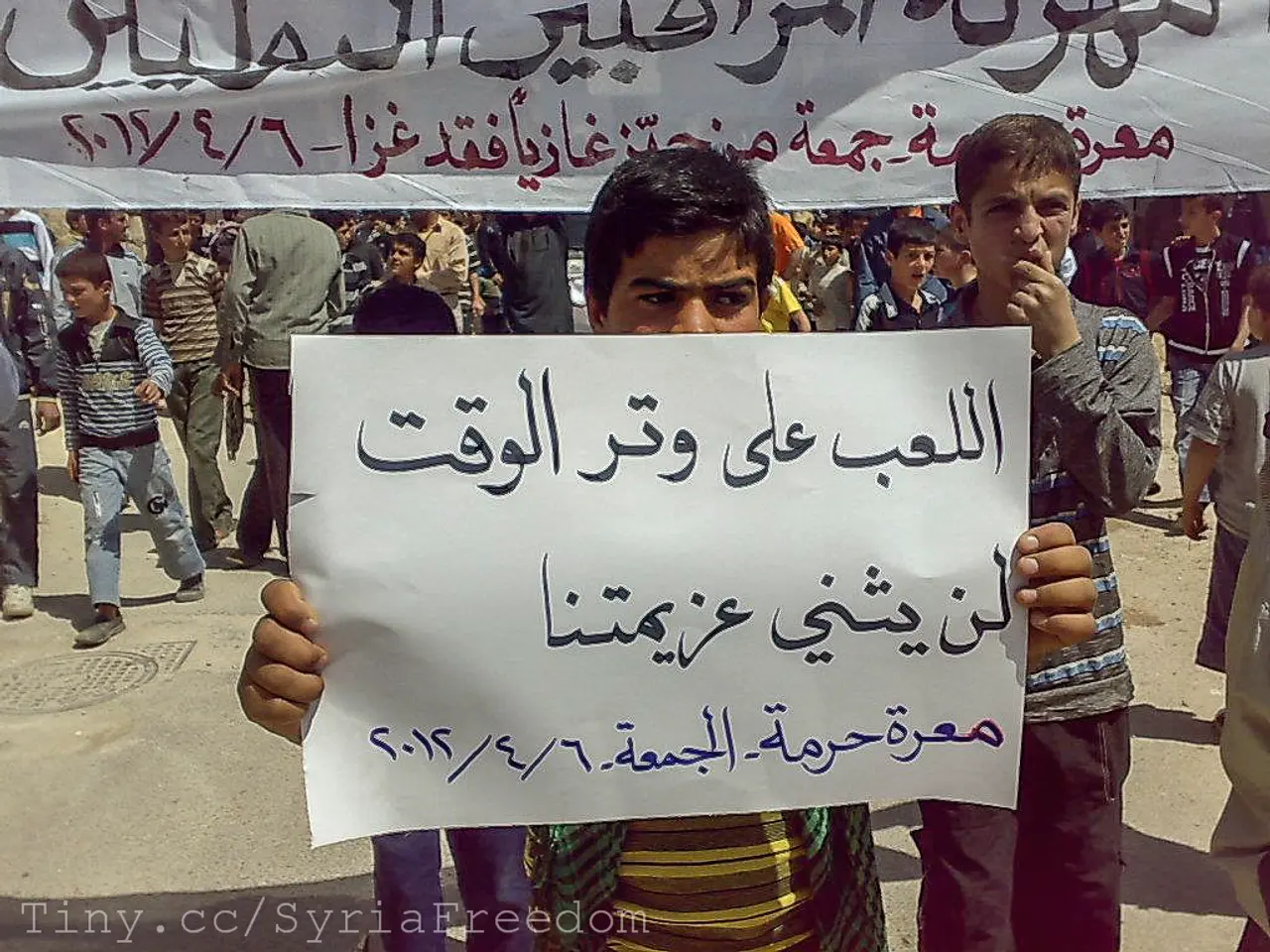EU finds Israel not entirely compliant with Gaza aid agreement
The European Union (EU) has expressed concern over Israel's compliance with an agreement to improve humanitarian aid to the civilian population in the Gaza Strip. Despite commitments made in July 2025 to enhance humanitarian access, the delivery of aid remains insufficient, and the humanitarian situation has worsened significantly.
In July, Israel agreed to significant steps, including a considerable increase in aid trucks entering Gaza and the reopening of certain routes. This was initially viewed as a diplomatic breakthrough. However, subsequent reports indicate that these measures have not translated into adequate relief on the ground.
The EU and multiple EU member states, as well as international partners, have condemned Israel's restrictive rules on aid-giving NGOs. These rules create bureaucratic hurdles that threaten NGO operations and consequently endanger civilian access to essential aid such as food, water, medicine, and shelter supplies.
The EU's humanitarian aid chief acknowledged some progress but described it as minimal and inadequate to meet needs or enable efficient aid delivery. Official EU statements and foreign ministers from 19 EU countries have explicitly called on Israel to amend its policies, drop restrictive NGO registration requirements, and allow safe, large-scale humanitarian access without politicization or the use of lethal force at distribution sites.
Human rights organizations and EU officials criticize Israel for breaching obligations under the EU-Israel Association Agreement, which mandates respect for human rights. They warn that failure to act amounts to complicity in ongoing humanitarian violations in Gaza.
The repair of some key infrastructure facilities, the reopening of the Egyptian and Jordanian routes, and the opening of the Zikim crossing to northern Gaza are positive developments, according to the EU's document. However, these improvements have not been enough to alleviate the catastrophic supply situation facing the approximately two million Palestinians in the Gaza Strip.
The resumption of fuel supplies and the opening of certain crossings are the only specific positive developments mentioned in the EU's document. However, the number of trucks carrying aid entering the Gaza Strip daily is still below the agreed-upon levels.
The war in the Gaza Strip began due to a massacre by Hamas and other extremists. Since the start of the conflict, more than 60,000 people have been killed in the Gaza Strip, according to the health authority controlled by Hamas. The number of deaths does not distinguish between civilians and fighters.
The EU's diplomatic service, in a document sent to member states, states that they cannot verify all the data due to lack of access granted by Israeli authorities to the Gaza Strip. The document, obtained by the German Press Agency, also notes discrepancies between the numbers provided by the United Nations and humanitarian actors and those provided by Israel.
As the humanitarian crisis in the Gaza Strip continues, the EU urges Israel to fully comply with its commitments and ensure the safe and efficient delivery of aid to the civilian population.
- Concerns over Israel's compliance with humanitarian aid agreements have increased, as the EU and its member states, human rights organizations, and foreign ministers from 19 EU countries have explicitly called on Israel to drop restrictive NGO registration requirements, amend its policies on aid-giving organizations, and allow safe, large-scale humanitarian access without politicization or the use of lethal force.
- The EU's humanitarian aid chief acknowledged that some progress has been made, but described it as minimal and inadequate to meet needs or enable efficient aid delivery, while the general news suggests that political considerations continue to impede the delivery of adequate humanitarian aid during war-and-conflicts, such as the ongoing crisis in the Gaza Strip.








